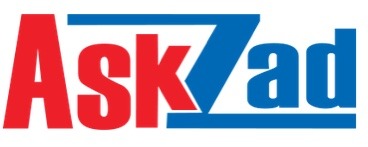Éthique de la publication
Éthique de la publication
Wisdom Journal for Studies and Research publié par l'Université et l'Institut de justice et de sagesse en Amérique publie des articles, des études et des recherches scientifiques originaux et arbitrés, tout en adhérant aux principes de l'éthique de la publication. Le Code d'Ethique est classé sous le Comité d'Ethique de la Publication (COPE : Comité d'Ethique de la Publication), qui constitue la base directrice pour les auteurs et les chercheurs. De ce point de vue, le journal a cherché à fixer des normes unifiées pour l'application des lois de ce code éthique.
1- DEVOIRS DE L'EDITEUR :
• Intégrité : Le rédacteur en chef doit s'assurer que le contenu de chaque article soumis pour publication est évalué, indépendamment du sexe, de l'origine, des croyances religieuses, de la citoyenneté ou de l'affiliation politique de l'auteur.
• Confidentialité : Les informations confidentielles des auteurs de la recherche doivent être conservées par toutes les personnes qui peuvent les consulter, telles que le rédacteur en chef, les membres du comité de rédaction, les arbitres et autres parties de confiance tel que requis par le processus d'arbitrage. Consentement explicite : Ne pas bénéficier des résultats des recherches d'autrui liées à des recherches non publiables sans le consentement écrit de son auteur.
• Décision de publication : les droits d'autrui doivent être préservés lors de la publication de recherches dans la revue, et le rédacteur en chef est considéré comme le principal responsable de la décision de publier et d'imprimer, sur la base de la politique de la revue. Avec le plus grand soin d'éviter la diffamation, la calomnie, la violation du droit d'auteur ou le piratage, le rédacteur en chef peut consulter les membres du comité de rédaction pour prendre les décisions appropriées
. 2- DEVOIRS DES EXAMINATEURS :
• Confidentialité : Toutes les informations de recherche doivent être confidentielles à l'arbitre, et ce dernier cherche à maintenir sa confidentialité et ne peut divulguer ou discuter de son contenu avec aucune autre partie que celles autorisées par le rédacteur en chef.
• Objectivité : L'arbitre doit examiner et évaluer les recherches qui lui sont adressées avec des preuves objectives, et éviter l'arbitrage sur la base d'un exposé de son point de vue personnel, et de l'aspect raciste, sectaire et autre.
• Identification des sources : l'arbitre essaiera d'identifier les sources et références liées au sujet qui n'ont pas été marginalisées par l'auteur, et informera le rédacteur en chef de toute oeuvre similaire, similaire ou chevauchante avec l'oeuvre sous arbitrage.
• Conflit d'intérêts : l'arbitre doit éviter de ne pas arbitrer des articles de recherche ayant des objectifs et des intérêts personnels, ou d'intérêts corporatifs.
• Rapidité de service et respect des délais : L'arbitre doit veiller à la rapidité de l'arbitrage et respecter les délais, et si cela n'est pas possible, il informe le rédacteur en chef des raisons, telles que la différence de spécialisation, ou manque de temps ou autres.
• Contribution à la décision de publication : Le referee assiste le rédacteur en chef et le comité de rédaction dans la prise de décision de publication et dans la correction et la demande de modification de l'article.
3- DEVOIRS DES AUTEURS :
*Critères de préparation : L'auteur doit soumettre une recherche originale et objective, cohérente dans la langue, la forme et le contenu, conformément aux conditions de publication dans la revue, tout en renvoyant l'information à ses propriétaires (honnêteté scientifique) et en évitant de traiter de sujets sensibles. et sujets immoraux, goût, personnel, ethnique, sectaire, information Traduction fausse et incorrecte du travail d'autrui sans mentionner la source de la citation dans la recherche.
• Accès et conservation des données : L'auteur doit conserver la confidentialité des données qu'il a utilisées dans ses recherches, et les soumettre à la demande du comité de rédaction ou de l'évaluateur.
• Divulgation : L'auteur doit divulguer tout conflit d'intérêts, financier ou autre, pouvant affecter les résultats et l'interprétation de la recherche, en plus de divulguer la source de chaque soutien financier pour son projet de recherche.
• Auteurs de l'article : le (nombre) des auteurs de l'article doit être limité à ces contributeurs uniquement de manière large et claire, à la fois en termes de conception, de mise en oeuvre et d'interprétation, avec la nécessité de spécifier l'auteur principal et les co-auteurs avec lui uniquement, et mentionnez leurs données, universités et e-mails. Avec la nécessité d'être informés et les auteurs sont unanimement d'accord sur la recherche.
• Références et références : L'auteur de la recherche mentionne les références ou la documentation de manière appropriée aux termes de la revue, avec une liste de références comprenant des livres, des publications, des sites Web et d'autres chercheurs cités ou mentionnés dans le texte de recherche.
• Originalité et piratage : l'auteur doit marginaliser et documenter sa recherche en se référant aux propriétaires des informations qu'il a utilisées dans sa recherche. La documentation doit être conforme aux termes du journal. Notez que le magazine a le droit d'utiliser des programmes de détection de plagiat pour les oeuvres soumises pour publication Signalement d'erreurs : Lorsque l'auteur découvre des erreurs qui ont été contenues dans ses recherches ou en partie de celles-ci, il doit en informer immédiatement le rédacteur en chef du magazine ou l'éditeur, et coopérer pour corriger l'erreur. Republier : L'auteur ne peut pas soumettre la même recherche à plus d'une revue ou conférence, et cela est considéré comme un comportement contraire à l'éthique et inacceptable.








